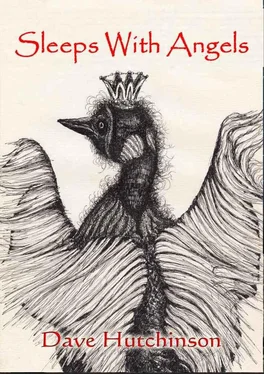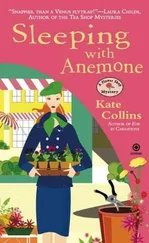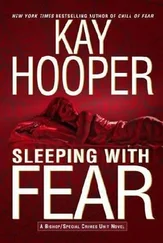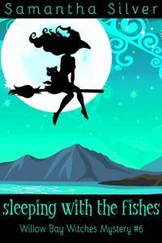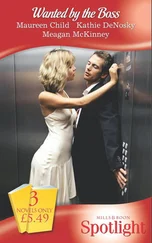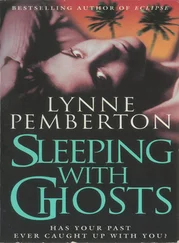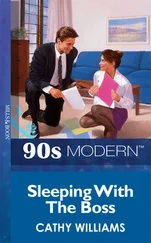“And all this…?” Indicating the lettuce and stuff.
“Garnish. It’s garnish.” I saw the look on his face and put down my knife and fork. “Look, you didn’t pay for it, so I think it’s pretty fucking rude to complain about it, actually.”
Rowland sat back on the slippery plastic-upholstered banquette and lowered his chin. “I didn’t want to stop anyway,” he muttered into his chest like a sulky six-year-old.
“Oh, for heaven’s sake…” I rubbed my face and sat back and looked around the restaurant. The A-roads of Britain do not, as a rule, have the same dining facilities as the motorways. Travel on a motorway, and every half an hour or so there will be a service station where you can buy petrol and a weird and eclectic selection of newspapers, books, magazines, CDs, audio cassettes, soft toys, sweets, soft drinks, bunches of flowers and packets of crisps. These service stations will always have a restaurant. Back when I left school and spent a year, before going to university, working as a chef in a service station kitchen, they would have their own restaurants, with their own food. These days, they’ve mostly surrendered to the chains, and if you want something to eat you have a choice, depending on where you stop, of burgers or fried chicken or some obscure brand of pie.
On an A-road, on the other hand, the stops come at irregular intervals, if at all. There is usually petrol, but not often newspapers and magazines. And the restaurants are another thing altogether.
The one we had stopped at seemed to have been overlooked by the march of Civilisation, like the home of some undiscovered South American tribe. The orange carpet had the texture of a saucepan-scourer, the walls were panelled with vanishingly-thin strips of wood veneer, and the furniture looked like a 1970s low-budget film-maker’s idea of the seating on a passenger space vehicle. The food had been abused so much that it was barely food any longer, more an outdated ideal of food from the days when British situation comedies had found Afro-Caribbean accents amusing.
I was actually appalled that I had stopped here, but I needed large amounts of caffeine and sugar and I needed to be off the road while the storm was going on, two things this restaurant actually did very well. Rowland, on the other hand, had decided that he wanted lunch too. And then he had discovered that he had left home without his wallet.
I said, “I needed a break, Rowland.”
He didn’t bother to raise his head, but he did shrug.
“You can’t just turn up on someone’s doorstep at nine o’clock in the morning without any warning and expect them to be all bright-eyed and bushy-tailed and waiting to drive you to the West Country,” I said.
Rowland looked at me from under his great badgery eyebrows. “You were lucky to get a degree at all, you know,” he said in a low voice.
“Oh, Rowland,” I groaned.
“The Faculty thought — quite accurately, I might add — that your coursework was of poor quality,” he went on, and as if gaining strength from his words he managed to spear a fry and pop it into his mouth. “I, of course, thought differently.” He chewed the fry and swallowed.
“Rowland,” I said. “Not now.”
“I went into Cunningham’s office and stood up for you, Jim,” he told me, and he magically managed to lift his head and sit up. “I told him I thought you had some worth.”
I drank some coffee.
By now his anger had enabled him to cut a small portion off his fried plaice. He swiped it through the ketchup and the tartare sauce. “I forced Cunningham to see that you had some promise.” He actually twinkled at me as he ate the piece of fish. “I got you that degree, Jim.”
I drank more coffee.
“And what did you do with that degree, Jim? Hm?” I watched his fork range around the oval platter his meal rested on, picking up fish, fries, a bit of lettuce, some cress. He put them all in his mouth, chewed, swallowed. “What exactly did you do with that degree I put my career on the line for? Hm?”
“You didn’t put your career on the line for me, you mad old tosser,” I said. It was such a ludicrous concept that I almost laughed out loud. “You never put anybody else before yourself in your life.”
By now, he was industriously clearing his platter. “Whatever else you’ve managed to piss away up a wall in the meantime, I got you that degree,” he told me with enormous confidence. “You owe me, Jim.”
“I don’t owe you anything at all,” I said, but we both knew I was lying. He really had gone to Cunningham and argued in my favour. Of course, he’d done it knowing that he was storing up favours for the future. But he’d still done it.
“All I want you to do is drive me somewhere,” he said. “How hard can that be?”
I looked out of the windows. “I think the rain’s easing off,” I said.
I couldn’t even remember now why I had applied for the course, apart from it being relatively easy to get on to and promising a certain amount of work in the open air. And, at the beginning, I had been absolutely illuminated with enthusiasm. I had, in fact, been enthusiastic about it for a little over two thirds of my time at university. Then I simply realised that I had never been cut out to be an archaeologist. I had a moment of epiphany at the bottom of a trench just outside Cirencester when I stood up, looked at the trowel I was holding, and thought, hang on, what on Earth is this all about? And right there and then I lost the faith, and I never got it back.
Certainly, there were little moments later, on rainy digs in fields from Wiltshire to Northumbria, when my trowel turned up a piece of pottery thrown just a hundred years or so after the birth of Christ. and I remembered that I had once seen the point of it all, and I did sort of do enough to finish the course and kind of get a degree. But mostly it was just unrewarding backbreaking toil, and anything of interest I found was subsumed uncited into papers published by my tutors — usually Rowland, who loved fieldwork. I was a nobody, a little ant scraping away at the soil. And that was how I was going to stay.
I did, however, have some small talent for writing, and in my final year at university, having finally realised that I had wasted the previous two years, I began to make approaches to various national newspapers, and was finally offered a post as a journalist at the London office of a regional newspaper publisher. When I graduated, I fled to Fleet Street. At much the same time that every other newspaper was quitting the Street for offices in Docklands or Kensington.
I managed to last twenty years on Fleet Street, something which still astounded me when I considered how much of my time had been spent writing stories about self-help gurus, fading soap stars and little boys whose kittens had somehow managed to secrete themselves in tumble driers. Then one day I lost the faith again. Something snapped and I freelanced a couple of thousand words to a listings magazine about an up-and-coming author’s new novel. The novel went on to the Booker shortlist, though it didn’t win, and I was invited onto a couple of television arts programmes to talk about it, and that led to various irregular gigs writing pieces for magazines and newspapers and occasional appearances on arts shows. Engorged with my new-found status as a prophet of the zeitgeist , which was really annoying my employers, I tendered my resignation and officially went freelance.
At which point, of course, all my commissions dried up. Prophets have a short shelf-life. I wrote stuff, and no one wanted it. I was reduced to doing lifestyle pieces for the Observer and the Times . After a while even that stopped and I wound up doing speculative stuff for the Evening Standard ’s Friday magazine.
Читать дальше
